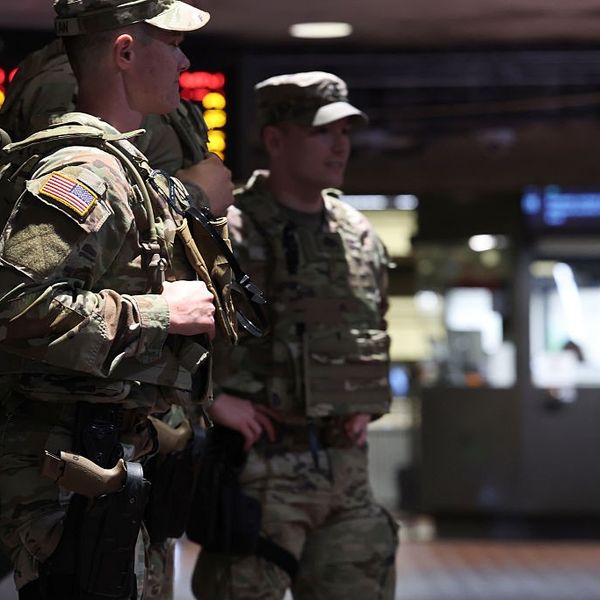
WikiLeaks founder Julian Assange gestures as he addresses members of the media and supporters from the window of the Ecuadorian embassy in Knightsbridge, west London on December 20, 2012. (AFP Photo / Leon Neal)
Assange Could Win Australian Senate Seat, Poll Shows
WikiLeaks founder could see more support for Senate campaign than originally predicted
WikiLeaks founder Julian Assange stands a good chance of winning his bid for an Australian Senate seat this September, according to a new poll released Wednesday.
The poll, which asked Australian voters online "How likely would you be to vote for [Assange] and the WikiLeaks Party?" showed that 26 per cent of respondents considered themselves likely to vote the WikiLeaks Party into office.
The same went for 23 per cent of voters in Victoria, where Assange will run.
Given Australia's electoral structure, "compulsory preferential voting," 23 to 26 per cent is more than enough to secure a seat for Assange.
The UK's Register explains:
But Assange doesn't need 23 per cent of votes to win a seat, because voting for Australia's Senate uses compulsory preferential voting, with candidates elected if they secure a quota of one sixth of all votes cast. Once a candidate secures a quota, further votes for that candidate are passed on to voters' second preference. This system means that a candidate can be elected without many voters selecting them as their first preference.
The realities of Australian politics mean that the State of Victoria, Assange's home for several years, will elect two Senators from the dominant Labor party and its main rival the Liberal/National coalition. A fifth seat will likely go to The Australian Greens, leaving the sixth up for grabs.
That seat may, if recent history is any guide, go to a candidate who secures as little as two per cent of first preference votes.
Although a victory for Assange in September may not be his ticket out of the Ecuadorian embassy in London, as the Register explains, it could give him a voice in the Australian government that could prove helpful in the future:
Even if Assange did win a seat, Australian Parliamentarians don't enjoy privileges that would allow him avoid arrest upon exiting the Ecuadorian Embassy in London. And as this article points out, he may in any case not be eligible to run. Even if he is eligible and wins, he then faces the problem of appearing in the Senate, as if he fails to do so his seat would be declared vacant and awarded to another member of his party.
If that were to happen, Australia would likely gain a noisy pro-Assange voice in Parliament. That could still be useful to Assange, as the Senate has not delivered an absolute majority for the government of the day during most of the last thirty years. Minor party or independent Senators therefore often trade support for the Government's agenda for support for their pet causes.
_______________________
An Urgent Message From Our Co-Founder
Dear Common Dreams reader, The U.S. is on a fast track to authoritarianism like nothing I've ever seen. Meanwhile, corporate news outlets are utterly capitulating to Trump, twisting their coverage to avoid drawing his ire while lining up to stuff cash in his pockets. That's why I believe that Common Dreams is doing the best and most consequential reporting that we've ever done. Our small but mighty team is a progressive reporting powerhouse, covering the news every day that the corporate media never will. Our mission has always been simple: To inform. To inspire. And to ignite change for the common good. Now here's the key piece that I want all our readers to understand: None of this would be possible without your financial support. That's not just some fundraising cliche. It's the absolute and literal truth. We don't accept corporate advertising and never will. We don't have a paywall because we don't think people should be blocked from critical news based on their ability to pay. Everything we do is funded by the donations of readers like you. The final deadline for our crucial Summer Campaign fundraising drive is just days away, and we’re falling short of our must-hit goal. Will you donate now to help power the nonprofit, independent reporting of Common Dreams? Thank you for being a vital member of our community. Together, we can keep independent journalism alive when it’s needed most. - Craig Brown, Co-founder |
WikiLeaks founder Julian Assange stands a good chance of winning his bid for an Australian Senate seat this September, according to a new poll released Wednesday.
The poll, which asked Australian voters online "How likely would you be to vote for [Assange] and the WikiLeaks Party?" showed that 26 per cent of respondents considered themselves likely to vote the WikiLeaks Party into office.
The same went for 23 per cent of voters in Victoria, where Assange will run.
Given Australia's electoral structure, "compulsory preferential voting," 23 to 26 per cent is more than enough to secure a seat for Assange.
The UK's Register explains:
But Assange doesn't need 23 per cent of votes to win a seat, because voting for Australia's Senate uses compulsory preferential voting, with candidates elected if they secure a quota of one sixth of all votes cast. Once a candidate secures a quota, further votes for that candidate are passed on to voters' second preference. This system means that a candidate can be elected without many voters selecting them as their first preference.
The realities of Australian politics mean that the State of Victoria, Assange's home for several years, will elect two Senators from the dominant Labor party and its main rival the Liberal/National coalition. A fifth seat will likely go to The Australian Greens, leaving the sixth up for grabs.
That seat may, if recent history is any guide, go to a candidate who secures as little as two per cent of first preference votes.
Although a victory for Assange in September may not be his ticket out of the Ecuadorian embassy in London, as the Register explains, it could give him a voice in the Australian government that could prove helpful in the future:
Even if Assange did win a seat, Australian Parliamentarians don't enjoy privileges that would allow him avoid arrest upon exiting the Ecuadorian Embassy in London. And as this article points out, he may in any case not be eligible to run. Even if he is eligible and wins, he then faces the problem of appearing in the Senate, as if he fails to do so his seat would be declared vacant and awarded to another member of his party.
If that were to happen, Australia would likely gain a noisy pro-Assange voice in Parliament. That could still be useful to Assange, as the Senate has not delivered an absolute majority for the government of the day during most of the last thirty years. Minor party or independent Senators therefore often trade support for the Government's agenda for support for their pet causes.
_______________________
WikiLeaks founder Julian Assange stands a good chance of winning his bid for an Australian Senate seat this September, according to a new poll released Wednesday.
The poll, which asked Australian voters online "How likely would you be to vote for [Assange] and the WikiLeaks Party?" showed that 26 per cent of respondents considered themselves likely to vote the WikiLeaks Party into office.
The same went for 23 per cent of voters in Victoria, where Assange will run.
Given Australia's electoral structure, "compulsory preferential voting," 23 to 26 per cent is more than enough to secure a seat for Assange.
The UK's Register explains:
But Assange doesn't need 23 per cent of votes to win a seat, because voting for Australia's Senate uses compulsory preferential voting, with candidates elected if they secure a quota of one sixth of all votes cast. Once a candidate secures a quota, further votes for that candidate are passed on to voters' second preference. This system means that a candidate can be elected without many voters selecting them as their first preference.
The realities of Australian politics mean that the State of Victoria, Assange's home for several years, will elect two Senators from the dominant Labor party and its main rival the Liberal/National coalition. A fifth seat will likely go to The Australian Greens, leaving the sixth up for grabs.
That seat may, if recent history is any guide, go to a candidate who secures as little as two per cent of first preference votes.
Although a victory for Assange in September may not be his ticket out of the Ecuadorian embassy in London, as the Register explains, it could give him a voice in the Australian government that could prove helpful in the future:
Even if Assange did win a seat, Australian Parliamentarians don't enjoy privileges that would allow him avoid arrest upon exiting the Ecuadorian Embassy in London. And as this article points out, he may in any case not be eligible to run. Even if he is eligible and wins, he then faces the problem of appearing in the Senate, as if he fails to do so his seat would be declared vacant and awarded to another member of his party.
If that were to happen, Australia would likely gain a noisy pro-Assange voice in Parliament. That could still be useful to Assange, as the Senate has not delivered an absolute majority for the government of the day during most of the last thirty years. Minor party or independent Senators therefore often trade support for the Government's agenda for support for their pet causes.
_______________________

